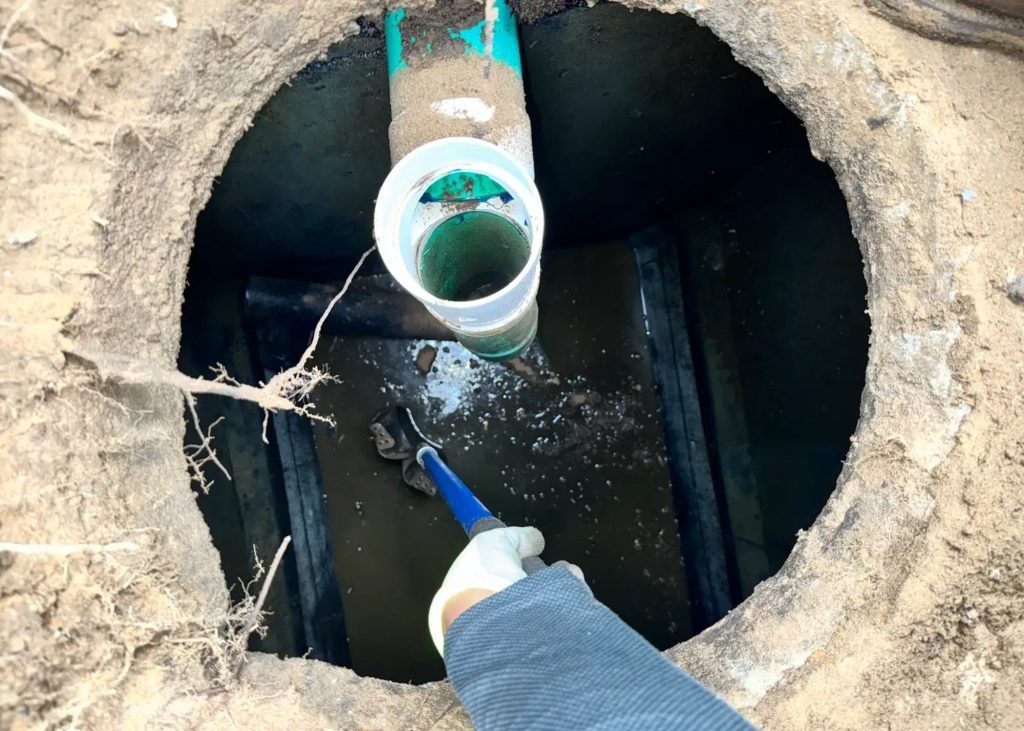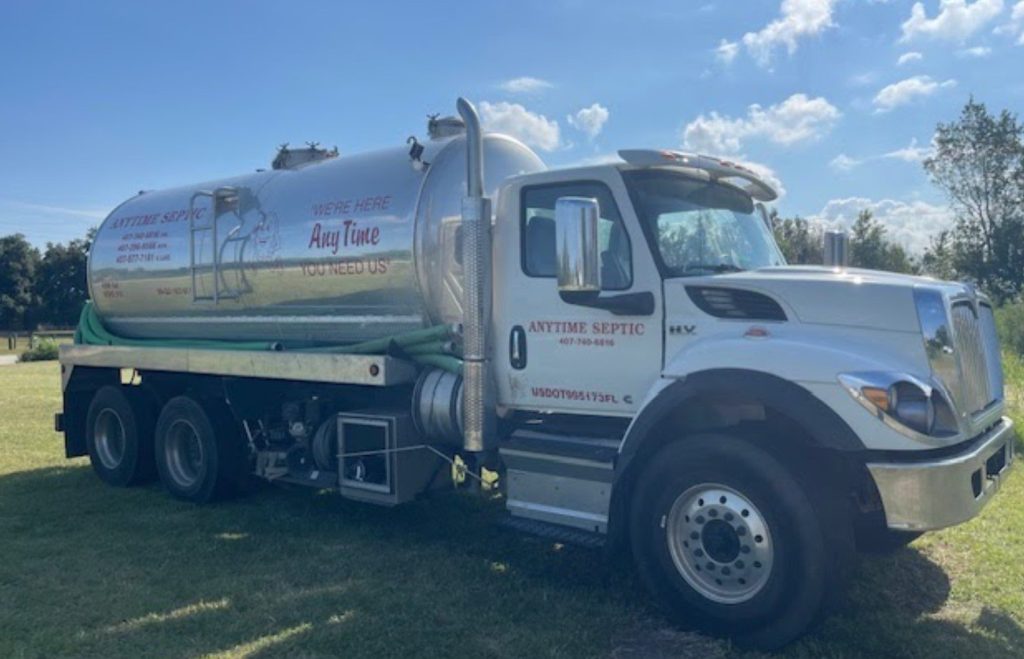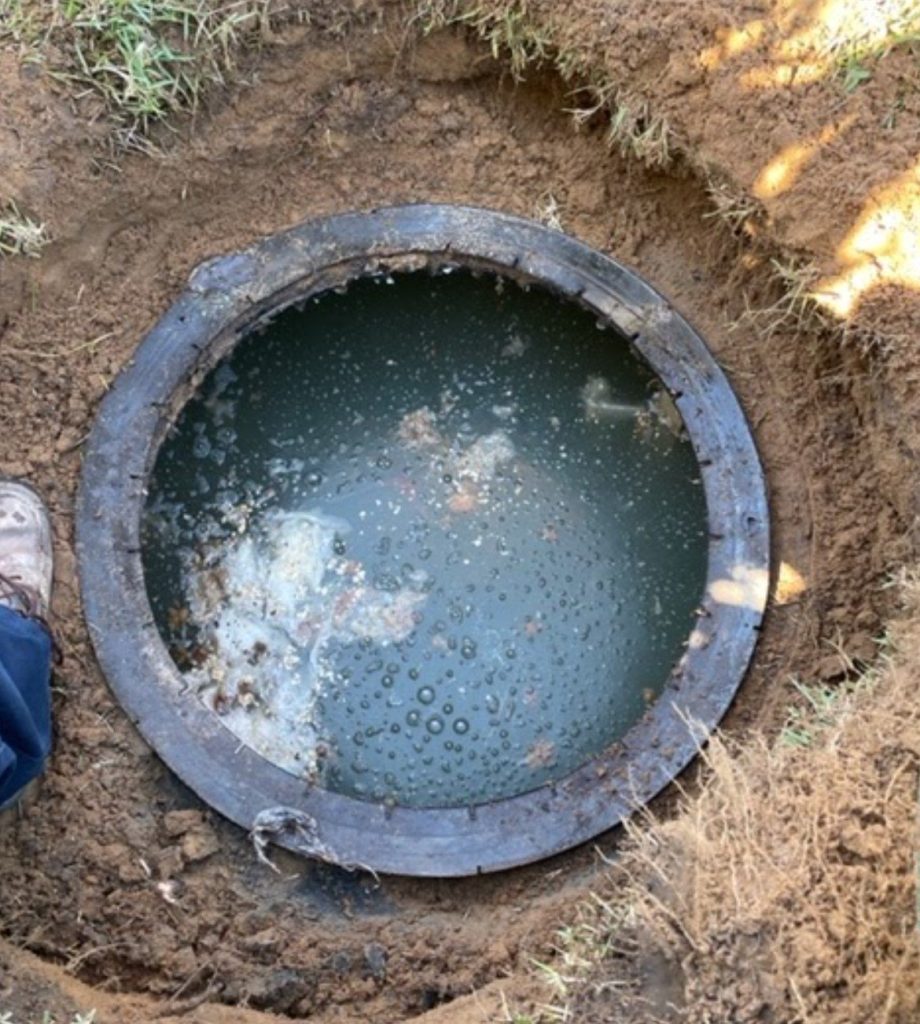Septic Pumping & Maintenance Services
Top Rated Septic & Sewer Drain Line Cleaning Company

40 Years Serving Orlando & Central Florida
“I called the office on a Friday Night frantically looking to get a very difficult new drain field installed within 5 days due to house closing. They had a technician at my house the next morning … Numerous other companies turned this job down…. as my backyard is a Giant Hill with no access. To my shock they completed both septic and inspection before end day 2. Extremely thankful for both the prayers and hard work of entire staff. Thanks all”
– Mike Klokus, 2022

Orlando's #1 Septic & Sewer Line Cleaning Company
- Family Owned & Operated
- Free Estimates
- Affordable Pricing & Special Offers
- Upfront Pricing-No Surprise Fees!
- Expert Master Service Technicians
- Emergency Service
- Same Day Service Appoinments
- Licensed & Insured
- Top Rated & Reviewed
Benefits of Regular Septic Tank Pumping
Having your septic tank pumped out on a regular basis is key to maintaining a healthy, efficient, and environmentally friendly system and has several benefits.
Preventing Backups: Pumping removes solid waste buildup, reducing the risk of sewage backups into your home or yard.
Extending Lifespan: Regular maintenance can prolong the life of your septic system, saving you from costly repairs or replacements.
Maintaining Efficiency: A pumped tank operates more efficiently, allowing for better breakdown of waste and proper drainage.
Protecting the Environment: Properly maintained septic systems are less likely to leak harmful contaminants into groundwater or nearby bodies of water.
Helps to Identify Issues Early: Regular pumping provides an opportunity for professionals to inspect your system and identify potential problems before they become serious.
Reducing Odors: Removing sludge and waste reduces unpleasant odors that can arise from a full or malfunctioning tank.
Cost Savings: Preventive maintenance is typically less expensive than emergency repairs caused by neglecting your system.
Compliance with Local Regulations: Many areas have regulations regarding septic system maintenance; regular pumping helps ensure compliance.
Signs your Orlando septic tank needs to be pumped and serviced?
Slow Drains: If sinks, showers, or toilets are draining slowly, it may indicate that your septic tank is full or clogged.
Unpleasant Odors: Foul smells around your home or in the yard can be a sign of a septic issue or an overflowing tank.
Sewage Backup: If you experience sewage backing up into your home, it’s a clear indication that your septic system needs immediate attention.
Pooling Water: Standing water or wet spots in your yard, especially near the drain field, can indicate a problem with your septic system.
Lush Grass Growth: If certain areas of your yard are unusually green or lush, it might be due to a leaking septic tank.
Gurgling Sounds: Unusual gurgling noises in your plumbing may indicate a blockage or an overloaded system.
Higher Frequency of Pumping: If you find yourself needing to pump your tank more often than usual, it may signal an underlying problem.
Signs of System Failure: If the septic tank or drain field is visibly damaged or showing signs of failure, such as cracks or breaks, it should be addressed promptly.
If you notice any of these signs, contact the septic service professionals at Anytime Septic to assess your system and perform needed septic service and maintenance.
How often do you need to pump a septic tank in Orlando Florida?
Your system will need pumping (generally every 1 to 3 years), depending on how many people live in the house, water usage, type of waste and the size of the system. An unusable septic system or one in disrepair will lower your property value and could even pose a legal liability, so it’s always a good idea to consult with a trusted local septic service professional who can assess your specific situation and recommend a tailored pumping schedule for your needs.
Use this link to access a free guide to help manage and maintain your septic system!

Request Free Quote

What to look for when hiring a reputable company to provide septic services
• How many years of experience do they have in septic tank pumping in your area?
• Are their technicians certified and trained?
• What is their process for pumping and disposing of waste?
• Are they familiar with local regulations specific to your city and county?
• Can they provide references from previous customers?
FAQ
septic tank system pumping & Maintenance
What determines how often you need a septic tank pump out?
Several factors influence the frequency at which a septic tank needs to be pumped. Understanding these factors will help you determine the appropriate schedule for septic tank maintenance.
• Household Size: The number of people living in your home directly affects septic tank pumping frequency. Generally, larger households produce more wastewater and require more frequent pumping.
• Water Usage: Your household’s water is crucial in septic tank maintenance. If water usage is excessive, it can overload the tank and accelerate the accumulation of solids, necessitating more frequent pumping.
• Tank Size: The size of your septic tank is an essential factor in determining pumping frequency. Smaller tanks have limited capacity and may require more frequent pumping, especially for larger households or higher water usage.
• Condition of the Septic System: The overall condition of your septic system can impact pumping frequency. If the system is properly maintained, with regular inspections and maintenance, it can function efficiently for extended periods between pumpings.
• Type of Waste: The waste flushed into the septic system can affect pumping frequency. Certain substances, such as non-biodegradable items or excessive amounts of chemicals, can accumulate and cause blockages, sytem damage and environmental damage. Please see out septic Do’s & Don’t for help on a detailed list of safe and non-safe items.
• Environmental Factors: Environmental factors, such as heavy rainfall or high groundwater levels, can impact the performance of a septic system. These factors may increase the load on the design and require more frequent pumping to prevent system failure.
Assessing these factors and developing a pumping schedule that suits your specific circumstances is essential. Consulting with a professional septic tank pumping service can help determine the optimal frequency for maintaining a healthy septic system.
Never put these items down your drains!
• Baby wipes or wet wipes may break down too slowly or not all, then bind with other debris to create blockages in your sewer system.
• Cat litter often includes clay particles that can clog pipes. Always throw away kitty litter into trash receptacles and never down the toilet.
• Coffee grounds can break down in the soil, but they don’t break down in the water.
• Dental floss, though small, is not biodegradable; additionally, it may get caught in a septic pump.
• “Disposable” diapers can get caught in pipes and lead to costly repairs.
• Dryer sheets don’t fully break down.
• Flushable wipes don’t break down as well as claimed and could lead to serious septic tank clogs.
• Latex products are small but will not break down in your septic tank; in some instances, they can even get out into waterways and become dangerous to marine life.
• Paper towels or tissues, though biodegradable to some degree, often don’t break down entirely.
• Potting soil or dirt
• Prescription drugs or medicines do not necessarily break down and can leak into nearby soil or waterways.
Proper Water Usage Tips to maintain a healthy septic system
• You’ll want to ease up on the amount of water going down the drains.
• Ensure proper drainage systems and downspouts pointing away from your tank.
• Limit your household to one shower at a time.
• Wash clothes over a few days instead of back-to-back.
• You can also install efficient showerheads and faucets to help limit the water flow.
How to prevent your drain field from getting clogged and waterlogged
The drain field, absorption field or leach field is the area around the septic system that allows liquids to sieve through the dirt. Due to the excessive rainfall Florida receives during much of the year, you may experience periods where your drain field has trouble draining.
These tips can help prevent drain field drainage issues:
• Plant shallow-rooted flowers or grass over the drain field to help absorb some rainfall. It’s important to note that you should never plant anything larger since roots from shrubs or trees can damage your septic system.
• Never install storm drains or gutters pointing towards your septic system.
• Minimize the use of water and drains during heavy rainfall.
• Don’t drive heavy vehicles over the drain field, as this could impact the soil and lead to it having trouble absorbing water.
How to prevent sludge from accumulating and clogging your septic system.
Preventing sludge accumulation and clogs in your septic system involves several proactive measures:
Regular Pumping: Schedule regular septic tank pumping every 1 to 3 years, depending on usage and tank size, to remove sludge before it builds up.
Installing a Good Filter: Installing a high quality filter will help prevent sludge from leaving the tank and possibly clogging the drainfield.
Mind Your Waste: Be cautious about what goes down the drain. Avoid flushing non-biodegradable items (e.g., wipes, feminine hygiene products) and limit the disposal of fats, oils, and greases.
Water Conservation: Reduce water usage and space out laundry loads to prevent overwhelming the system. Fix leaks and install low-flow fixtures to minimize wastewater production.
Avoid Harsh Chemicals: Limit the use of strong chemicals, like bleach and drain cleaners, as they can disrupt the balance of bacteria essential for breaking down waste.
Manage Landscaping: Keep trees and shrubs away from the septic system to prevent roots from invading and clogging the pipes.
Mind Your Drain Field: Do not park vehicles or place heavy structures over the drain field, as this can compress the soil and hinder proper drainage.
How to stop tree roots from damaging your septic system
Tree roots are naturally drawn to sewage and drain lines because of the water and nutrients that leach into the soil. Unfortunately, tree roots can grow into your septic tank or pipes causing significant damage to sewer pipes or drain lines resulting in backed-up drains, so taking these precautions may help prevent future damage.
• Only plant grass or other shallow-rooted plants.
• Never plant trees or shrubs near your septic system.
• If your property already has plants near your tank, you should remove them.

Emergency Tips if your Septic Tank Overflows
Stop Using Water
Limit water usage immediately: Stop flushing toilets, running the dishwasher, laundry machine, or any water-using appliances. Reducing water flow will prevent more wastewater from entering the septic tank and worsening the overflow.
Locate and Avoid the Affected Area
Stay away from the overflow area: Wastewater contains harmful bacteria, viruses, and pathogens that can pose serious health risks. Keep children and pets away from the septic overflow and avoid direct contact with standing water or wet areas.
Turn Off Sprinklers or Irrigation Systems
Shut down any sprinkler or irrigation systems to reduce water entering the septic drain field, which could make the problem worse.
